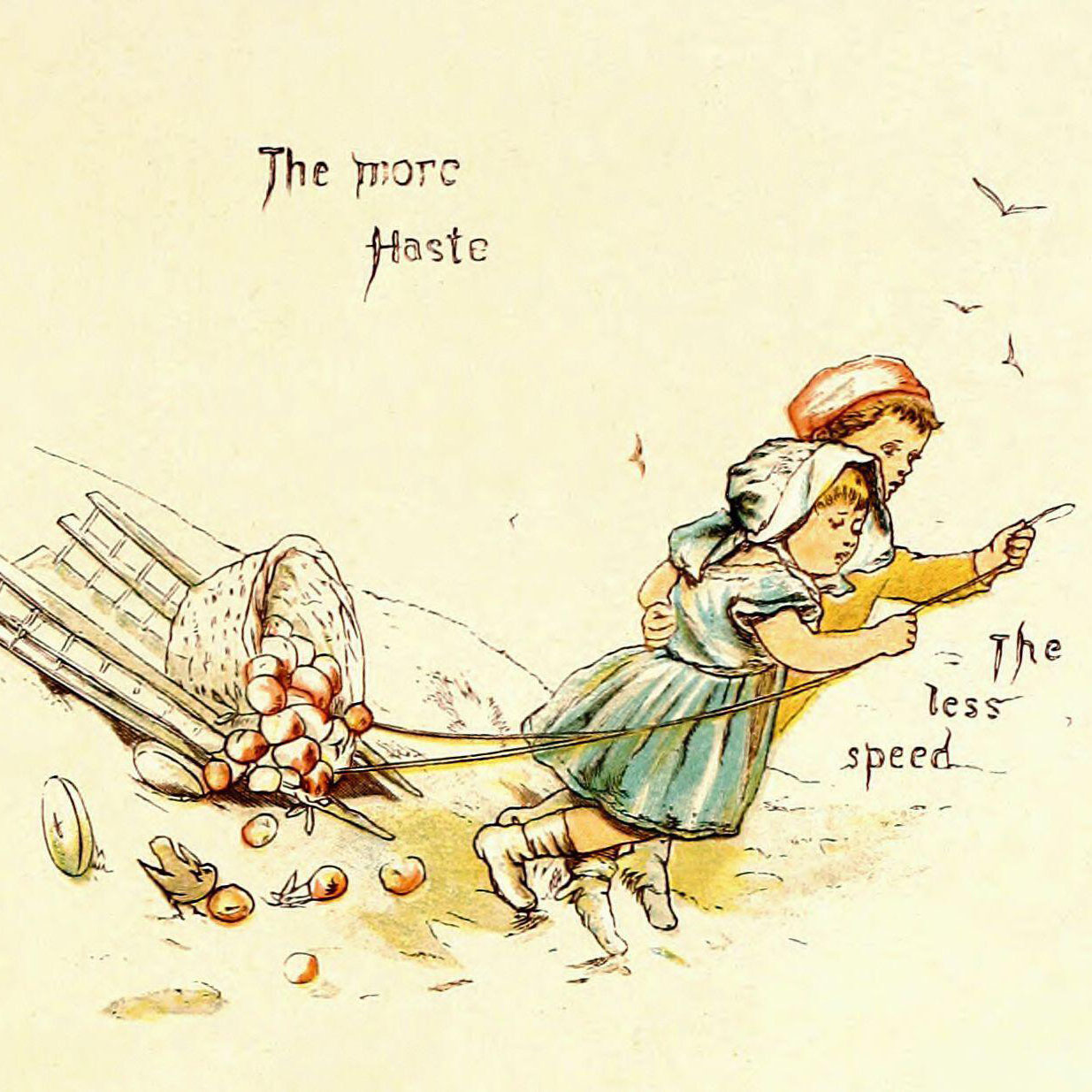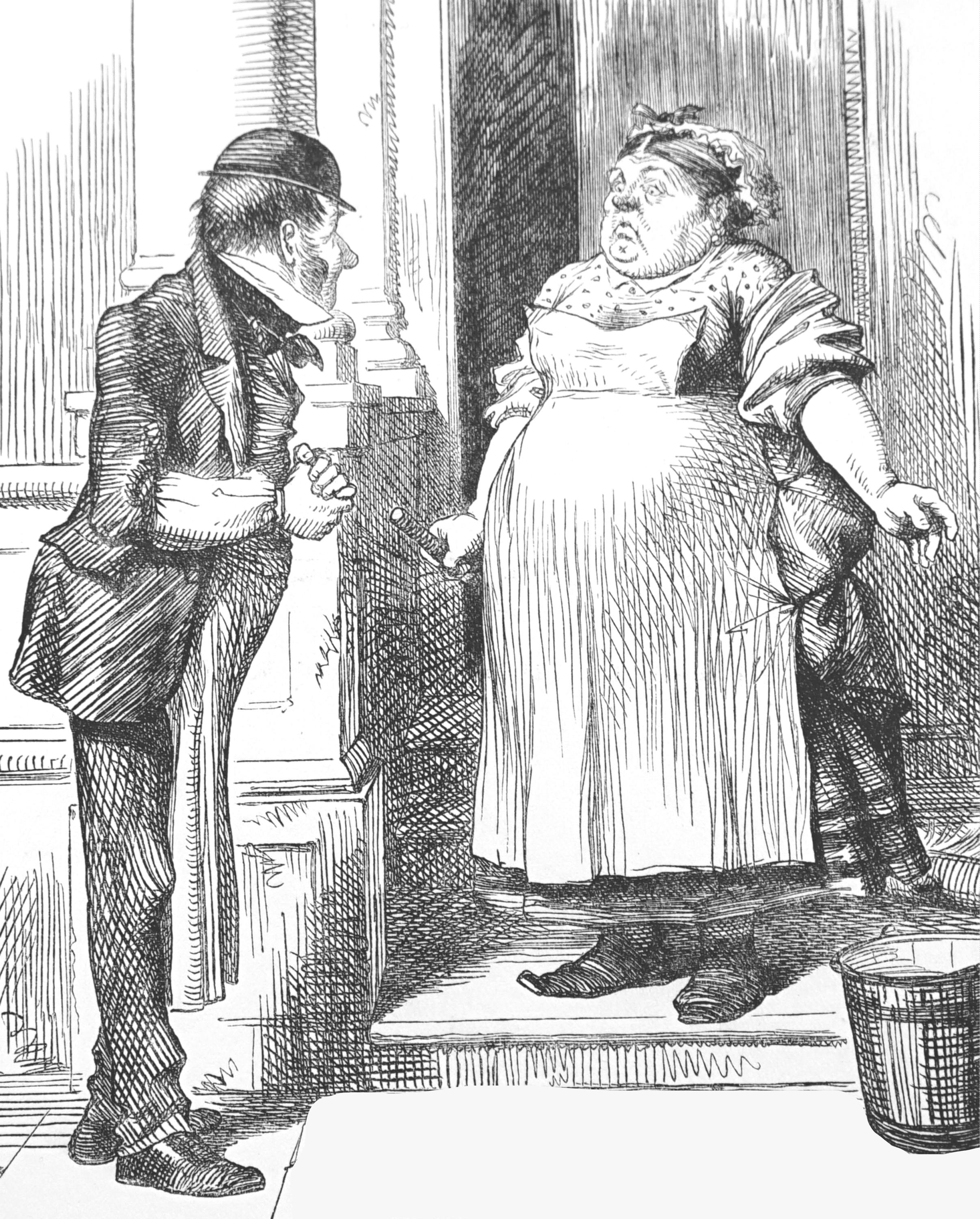Homespun wisdom, incontrovertible truths or hackneyed, tired thoughts? A penny for your thoughts on proverbs
Wise, world-weary and occasionally cynical, proverbs mirror the human experience and remain remarkably insightful today, discovers Matthew Dennison.

Exquisite houses, the beauty of Nature, and how to get the most from your life, straight to your inbox.
You are now subscribed
Your newsletter sign-up was successful
‘A person acts what he is when he may do what he will,’ wrote a monk in Kent at some point in the first half of the 11th century. This gnomic utterance was not of his own making — the monk in question was busy defacing a manuscript. Within a compendium of hymns, over five blank pages before the Canticles for Matins, he recorded 46 Old English proverbs and translated each of them into Latin. These wise, sometimes world-weary, occasionally cynical aphorisms reflect upon aspects of human experience — from friendship to fear, intemperance to trust — as understood 1,000 years ago.
Despite their age, the sayings preserved in the manuscript today known as the Durham Proverbs remain remarkably insightful. We can all agree that ‘a friend, or kinsman, is helpful whether far or near, but is more useful nearer’ and most of us, sadly, will be forced in time to concede that one ‘never knows the pleasure of sweetness who never tastes bitterness’. A proverb has been defined as a ‘traditional saying which offers advice or presents a moral in a short and pithy manner’.
In The Garden of Eloquence of 1593, Henry Peacham described proverbs as ‘taken from the experience of Nature’ and arising ‘from generall proofe and experience’, where the experience in question is one widely shared or recognised. ‘Of all the formes of speech,’ noted Peacham, ‘there is not one more apt, or more mighty to confirme or confute than this, which is grounded upon the strong foundation of experiences confirmed by all times, allowed of in all places, and subscribed to by all men.’

Seventeenth-century lexicographer James Howell suggested ‘proverbs may not improperly be called the Philosophy of the Common People’ and those proverbs that have survived for centuries to remain in use today are those that prompt most general agreement. ‘Truth will make itself known,’ recorded the author-monk of the Durham Proverbs, a reassurance to the virtuous, admonition to the culpable: a variant of the ‘murder will out’ principle of detective fiction and Midsomer Murders. ‘Often in a sooty bag treasures lie’ reads ‘Durham Proverb 7’, encouragement to the overlooked, as well as inspiration to those who ransack their attics and cellars in pursuit of forgotten treasures, an example of a proverb that functions both literally and metaphorically.
For many, the joy of proverbs is their encapsulation of incontrovertible truths; others are comforted by a timeless quality to their homespun wisdom. Proverbs appear to have played their part in Roman conversation; they continue to be coined today, such as the recent Haitian proverb, ‘the fish that is being microwaved doesn’t fear the lightning’. In the Old Testament, The Book of Proverbs preserves a collection of wise sayings traditionally that are attributed to Solomon. Proverbs 25.11 tells us, ‘a word fitly spoken is like apples of gold in settings of silver’ and proverbs recur throughout the Bible, including in the succeeding book — Ecclesiastes — where we encounter the still-current apothegm, ‘there’s nothing new under the sun’ and in Deuteronomy and St Matthew’s Gospel, which both remind readers that ‘Man cannot live by bread alone’.
In 12th-century England, a poem purported to record proverbial wisdom handed down by King Alfred. Although the Proverbs of Alfred were almost certainly not Alfred’s coinings, these alliterative verse maxims point to the value attached to this sort of guidance-cum-learning in the early-medieval period. A number of Chaucer’s Canterbury pilgrims have recourse to proverbs, including the monk’s well-known ‘ful wys is he that kan hymselven knowe’ and proverbs pepper the plays of Shakespeare, put to devastating use, for example, by a malignant Iago. Poet George Herbert, writing in the 17th century, remains best known, as he was to his contemporaries, for devotional verse.
Yet Herbert gathered together in Outlandish Proverbs more than 1,000 telling truisms. Among them are the cautionary ‘quick believers need broad shoulders’ and the wonderfully uncompromising ‘a fat housekeeper makes lean Executors’, the latter a statement that might have been coined to describe the relationship between the current Chancellor of the Exchequer and Britain’s farmers.
Exquisite houses, the beauty of Nature, and how to get the most from your life, straight to your inbox.
ersation; they continue to be coined today, such as the recent Haitian proverb, ‘the fish that is being microwaved doesn’t fear the lightning’. In the Old Testament, The Book of Proverbs preserves a collection of wise sayings traditionally that are attributed to Solomon. Proverbs 25.11 tells us, ‘a word fitly spoken is like apples of gold in settings of silver’ and proverbs recur throughout the Bible, including in the succeeding book — Ecclesiastes — where we encounter the still-current apothegm, ‘there’s nothing new under the sun’ and in Deuteronomy and St Matthew’s Gospel, which both remind readers that ‘Man cannot live by bread alone’.
In 12th-century England, a poem purported to record proverbial wisdom handed down by King Alfred. Although the Proverbs of Alfred were almost certainly not Alfred’s coinings, these alliterative verse maxims point to the value attached to this sort of guidance-cum-learning in the early-medieval period. A number of Chaucer’s Canterbury pilgrims have recourse to proverbs, including the monk’s well-known ‘ful wys is he that kan hymselven knowe’ and proverbs pepper the plays of Shakespeare, put to devastating use, for example, by a malignant Iago. Poet George Herbert, writing in the 17th century, remains best known, as he was to his contemporaries, for devotional verse.
Yet Herbert gathered together in Outlandish Proverbs more than 1,000 telling truisms. Among them are the cautionary ‘quick believers need broad shoulders’ and the wonderfully uncompromising ‘a fat housekeeper makes lean Executors’, the latter a statement that might have been coined to describe the relationship between the current Chancellor of the Exchequer and Britain’s farmers.

"A fat housekeeper makes lean Executors"
A good proverb does not remain for long confined to the page. It was the Roman rhetorician Quintilian who first recorded ‘a liar ought to have a good memory’. Quintilian’s prestige among Renaissance authors probably accounts for the same proverb making its way into the work of Henrician statesman-poet Sir Thomas Wyatt. Fast forward another 300 years and Quintilian’s apothegm was part of the folk knowledge of rural Oxfordshire, as recorded by Flora Thompson in her evocation of an 1880s country childhood, Lark Rise to Candleford. Of similar longevity is the proverb ‘familiarity breeds contempt’, which St Augustine described as being in common usage (‘vulgare proverbium est’) as long ago as the 5th century.
Not everyone, however, has always approved of proverbs or considered their ‘truths’ universally binding. Among churchmen historically were those who preferred their parishioners to draw their precepts from the Bible. In the 17th century, religious historian Thomas Fuller qualified Augustine’s proverb in a decidedly disapproving manner, noting in his commentary on the book of Ruth, ‘with base and sordid natures familiarity breeds contempt’.
Anglo-Irish writer Jonathan Swift, who, in addition to writing A Tale of a Tub and Gulliver’s Travels, was also Dean of St Patrick’s Cathedral in Dublin, evinced similar disdain for proverbs. In A Complete Collection of Genteel and Ingenious Conversation of 1738, Swift insisted that ‘the Readers must learn by all means to distinguish between Proverbs, and those polite Speeches which beautify Conversation’. Proverbs, in Swift’s view, could never be ‘the genuine Productions of superior Wits’.
Changing times and customs have an impact on the currency of proverbs. The Victorian proverb that states ‘there are more ways of killing a dog than choking it with butter’ has mostly fallen out of usage. Some proverbs, by contrast, are perennially recycled, witness to the unpredictability of human life and our unchanging need for reassurance, such as Homer’s ‘even weak men have strength in unity’, which offers us in challenging times the hope that, united, we are stronger.